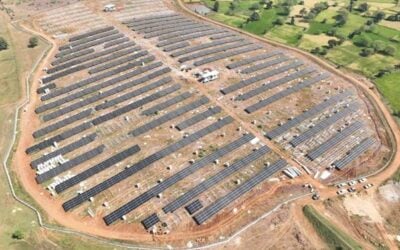Then-energy minister addressed an annual meeting of the Electricity Storage Network in early 2015. The call for evidence was first announced at the following year's meeting. Image: Edelman PR.
A ‘call for evidence’ from the UK government on how to reform the energy sector, calling for information and commentary by industry and other stakeholders, has been welcomed by the country’s Electricity Storage Network trade association.
The 104 page consultation document was published last week. It includes an emphasis on energy storage and recognises the flexibility storage can add to the network, discusses the current state of power networks and asks dozens of questions on topics from smart tariffs to low emissions vehicles from regulatory and technical standpoints.
Enjoy 12 months of exclusive analysis
- Regular insight and analysis of the industry’s biggest developments
- In-depth interviews with the industry’s leading figures
- Annual digital subscription to the PV Tech Power journal
- Discounts on Solar Media’s portfolio of events, in-person and virtual
In a blog published for Energy-Storage.News just before the document was released, we pinpointed barriers to energy storage as a key issue for the call for evidence, jointly published by the national regulator Ofgem and government department for Business, Energy and Industrial Strategy (BEIS), to tackle.
Speaking to the website today, Anthony Price, director of the Electricity Storage Network, said the call had been a long time coming, having been trailed by ministers since January and originally widely expected to emerge by May this year, before a pre-Brexit referendum moratorium put the brakes on all government announcements.
“We are very pleased it has come out. We are disappointed it has taken so long but very pleased that actually it is going to address a number of important issues to do with flexibility and specifically puts storage right up front,” Price said.
Regulatory definition to add clarity
One of those key issues is the definition of storage within the system. There are a plethora of further regulatory barriers, such as the prohibition of distribution network operators (DNOs) from owning generation assets, but an important – and inexpensive – first step would be to coin a regulatory definition of storage. The Ofgem/BEIS document asks stakeholders to share their views on what that should constitute. Going further, the Electricity Storage Network also advocates for the creation of a network licence for storage.
“Anything would be better than the current lack of clarity that we have at the moment,” Price said.
“[One of the things holding storage back previously] was lack of clarity in the regulation and definition so we said let’s have a new licence for storage because storage isn’t covered by any of the existing licence categories. That’s been picked up [by Ofgem/BEIS], they’re asking for evidence for and against licensing and furthermore that they’ve used our licence proposal or our definition as basis for the changes to legislation and regulation.”
Price said that rather than just ironing out kinks in the existing system, the energy system and corresponding market structures in Britain need to be overhauled entirely.
“There does need to be a massive overhaul of the whole sector. We are still dealing with issues or precedents that have been set a long time ago on the basis of old technology, and old methods and just don’t reflect the current changes in commercial activities and the change in technologies.”






